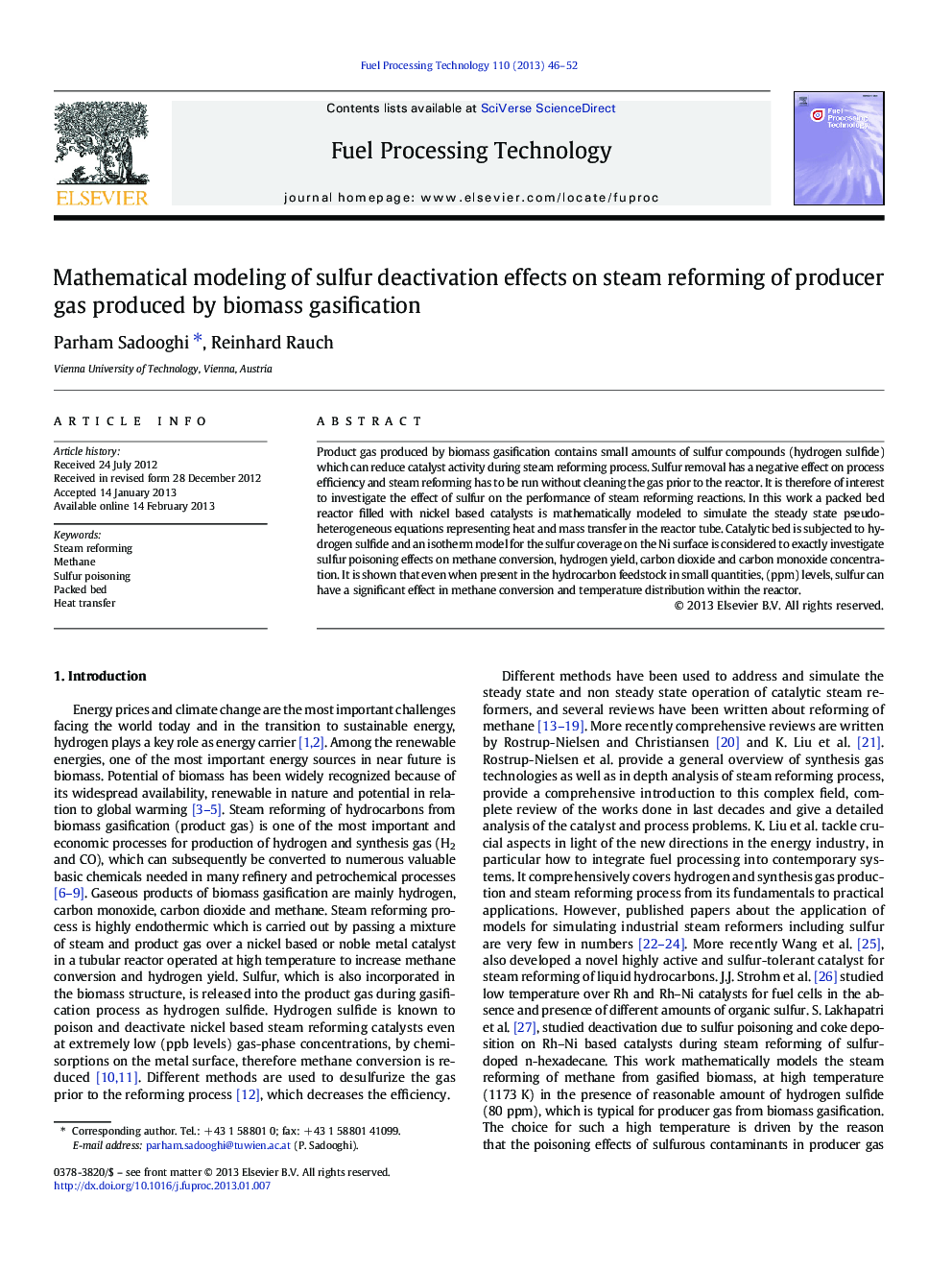| Article ID | Journal | Published Year | Pages | File Type |
|---|---|---|---|---|
| 209978 | Fuel Processing Technology | 2013 | 7 Pages |
Product gas produced by biomass gasification contains small amounts of sulfur compounds (hydrogen sulfide) which can reduce catalyst activity during steam reforming process. Sulfur removal has a negative effect on process efficiency and steam reforming has to be run without cleaning the gas prior to the reactor. It is therefore of interest to investigate the effect of sulfur on the performance of steam reforming reactions. In this work a packed bed reactor filled with nickel based catalysts is mathematically modeled to simulate the steady state pseudo-heterogeneous equations representing heat and mass transfer in the reactor tube. Catalytic bed is subjected to hydrogen sulfide and an isotherm model for the sulfur coverage on the Ni surface is considered to exactly investigate sulfur poisoning effects on methane conversion, hydrogen yield, carbon dioxide and carbon monoxide concentration. It is shown that even when present in the hydrocarbon feedstock in small quantities, (ppm) levels, sulfur can have a significant effect in methane conversion and temperature distribution within the reactor.
► Steam reforming of producer gas from biomass gasification is modeled. ► Deactivation effects of hydrogen sulfide on the process are investigated. ► Axial and radial temperature distributions along the reactor are calculated. ► Sulfur has significant effects on the process efficiency and hydrogen yield.
